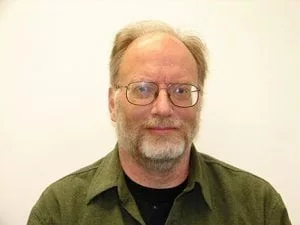
Home » Legislators still seeking compromise on Hirst ruling
Legislators still seeking compromise on Hirst ruling
July 14, 2017
Ruling affects rural development related to digging new wells
The Washington Legislature had no solution as of press time on how to loosen up a strict state Supreme Court ruling on digging wells in rural areas.
If no compromise bill is passed by July 20, the Supreme Court’s 2016 Hirst ruling will stand unchanged, and landowners won’t be able to dig new wells without proving they won’t threaten nearby stream levels needed for fish.
Without a Hirst compromise, rural development in the Mid-Columbia will face more hurdles.
“People with property who can’t build, those are the losers,” said Sen Judy Warnick, R-Moses Lake, the GOP leader on this legislation. She said the new permitting and mitigating processes could cost a well digger an extra $10,000 to $30,000.
“We’re looking for a way forward, but we’re running out of time,” said Rep Derek Stanford, D-Bothell, the Democratic leader on the issue. The current legislative session ends July 20.
Another ripple effect might be delays in some state-assisted construction projects in the Mid-Columbia.
The Hirst ruling stemmed from a lawsuit by the environmental organization Futurewise against Whatcom County over a complicated technical involving the Growth Management Act.
As of press time, the Democrats’ latest offer was to pass a bill to study the matter for 18 months to find a compromise, while wells could still be dug under pre-Hirst rules during that time.
Meanwhile, the latest Republican offer was to eliminate the requirements of the Hirst ruling for rural areas, trim the proposed permit fee and allocate $10 million to the state ecology department every two year to help find extra sources of water for drinking and fish. Neither side liked the other’s proposal.
Warnick said delaying Hirst-related legislation for 18 months could lead to people and companies digging wells during that time and then getting hit with new rules and costs at the 18-month mark when it is too late to change their minds.
Stanford contended that if no compromise is reached by July 20, the GOP will be stuck with the current Hirst ruling and its restrictions with no guarantee of any changes in the future.
Another wrinkle is Senate Republicans appear to be holding the state’s 2017-19 capital budget hostage — saying if they don’t get a Hirst compromise by July 20, they will not pass a capital budget.
The budget includes construction projects all throughout Washington, including building schools and other education facilities, mental health centers, roads, bridges and other infrastructure.
In the Mid-Columbia, that translates to construction of or improvements to an Interstate 395 interchange, the Tri-Cities Readiness Center, the Othello water system, water projects in the Yakima River basin, a building at Washington State University’s Tri-Cities campus, Alder Creek Pioneer Museum in Bickleton, a LIGO-STEM education center and a farm workers clinic in Kennewick.
Because construction work on schools would be slowed or stopped without a new capital budget, Gov. Jay Inslee said: “ It is morally repugnant to hold children hostage.”
Local News
KEYWORDS july 2017





